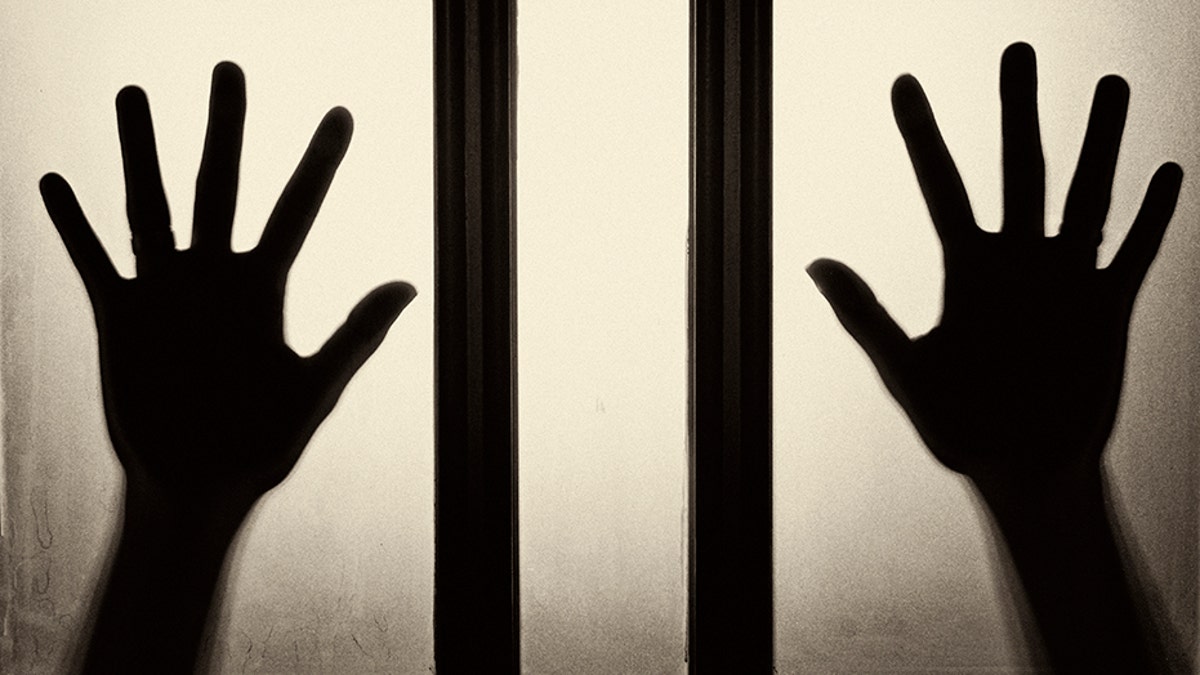
Female hand silhouette on the glass (iStock)
I am scheduled to testify Wednesday before the Senate Judiciary Committee on federal funding for DNA analysis – with the goal of promoting justice for victims of crime. As a survivor of assault and attempted rape on a Virginia running path, I am honored to testify regarding the reauthorization of the Debbie Smith Act, a program within the Violence Against Women Act (VAWA) that funds the processing of DNA rape kits.
First signed into law in 1994 by President Clinton, VAWA has been a hotbed of conflict and deep divisions along party lines – with both sides taking part in public mudslinging and scare tactics. But now more than ever it is time to try to find common ground, and focus on bringing justice and relief to the millions of brave American women who have survived violence and sexual assault.
Over the 24 years of VAWA’s existence, the Office of Violence Against Women has distributed over $7.6 billion to VAWA grant recipients. During this time, Concerned Women for America (CWA) has had a love-hate relationship with VAWA.
The fight against sexual exploitation is one of CWA’s seven core issues. As the nation’s largest public policy women’s organization, we applaud any efforts to reduce violence and bring support to victims. However, we have said that combating violence against women is (in most cases) most effectively organized at the state level.
In addition, we have been concerned over the lack of conscience provisions for faith-based service providers. For example, in 2011 – after five years of providing services to sex trafficking victims in 44 states – the U.S. Conference of Catholic Bishops was denied participation in the program. Many believe this was due to the group’s position opposed to abortion and the preference by the Department of Health and Human Services for a “full-range” of family planning services.
Equally frustrating is the lack of oversight and accountability, fraud and abuse of VAWA funds. We know that between 1993 and 2010, the Justice Department Inspector General reviewed 22 individual grantees that received VAWA funding. Of those 22, 21 grantees were found to have some form of “violation of grant requirements,” which included unauthorized or unallowable expenditures, slipshod record keeping and failure to report in a timely manner. And these are just a few examples.
The Debbie Smith Act is one small program within VAWA. This program is an abundantly worthy effort and an example of what can be achieved when we work together on a bipartisan basis. The program has made great strides in helping states begin the hard work to clean up the backlog of unprocessed DNA but we can do better.
Through the Debbie Smith Act, we have spent over $1.2 billion to clean up state rape kit backlogs since 2004. However, due to a lack of accountability and prioritization in this program, we still have little to no idea of whether these funds have reached this objective.
What we do know is that in many states the rape kit backlog is still unaccounted for, and in some cases forgotten, such as in the instance of the 11,000 kits found in an abandoned Detroit warehouse. These kits lay unopened and wasting for 14 years while rape victims waited for justice.
In recent years, CWA has realized we would rather work to improve the Debbie Smith Act and focus real and effective help to women. Instead of raging at the darkness, we are ready to light a candle. It is for this reason I will testify for the Debbie Smith Act, in a spirit of bipartisan cooperation and to be sure that the next reauthorization of the act will promote justice for victims of sexual assault. That, I am sure, is something on which we can all agree.
To that goal, when I testify I will ask the Senate Judiciary Committee for greater accountability in the Debbie Smith Act – specifically to account for the rape kit backlog – and for prioritizing the processing of rape kits over other crimes. As a condition of receipt of funds, states must be willing to come clean about the number of rape kits awaiting processing.
Secondly, we must prioritize the DNA processing of the sexual assault kits of rape victims. We understand that processing other types of crimes can increase the chance of getting DNA hits for perpetrators of sexual assault through the Combined DNA Index System and we fully support those efforts.
But let’s not forget that the first priority should be for the victims who have been waiting for justice for many years, often while enduring significant physical and psychological trauma. Justice demands that every woman represented in each of those forgotten rape kits be accounted for and their evidence processed.
Rarely can I remember a time when our nation was so deeply divided on current issues. In an era of bipartisan name-calling, dirt-throwing, and rampant distrust, now more than ever we must unite on an issue on which we can agree: justice and relief for the millions of brave women who have survived violence and sexual assault.
Now is the time for us to demand justice and accountability from both state and federal governments. Each of the rape kits waiting represents a woman praying that the monster who violated her will be prosecuted before the statute of limitations’ clock runs out. Let’s make that happen.



















